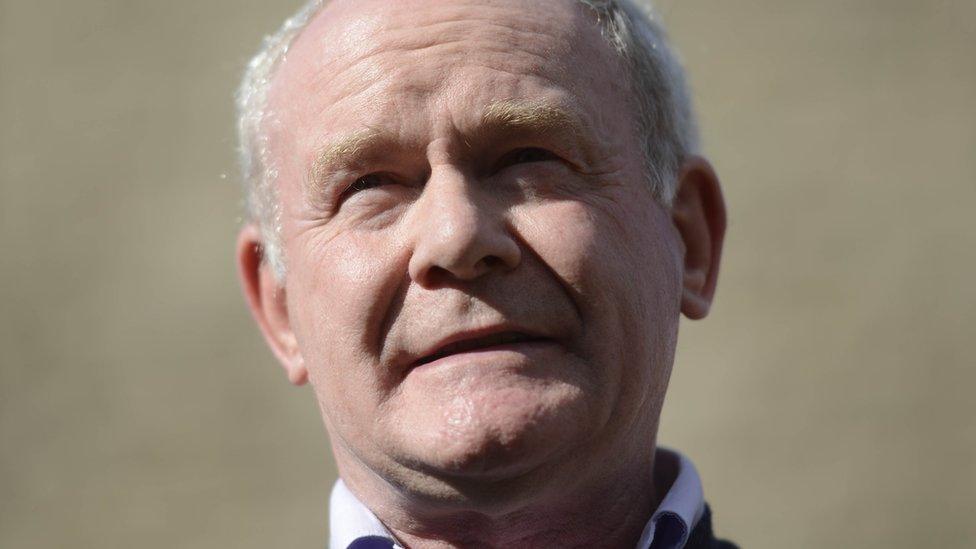Belfast refugees making a mark on Mourne mountains landscape
- Published
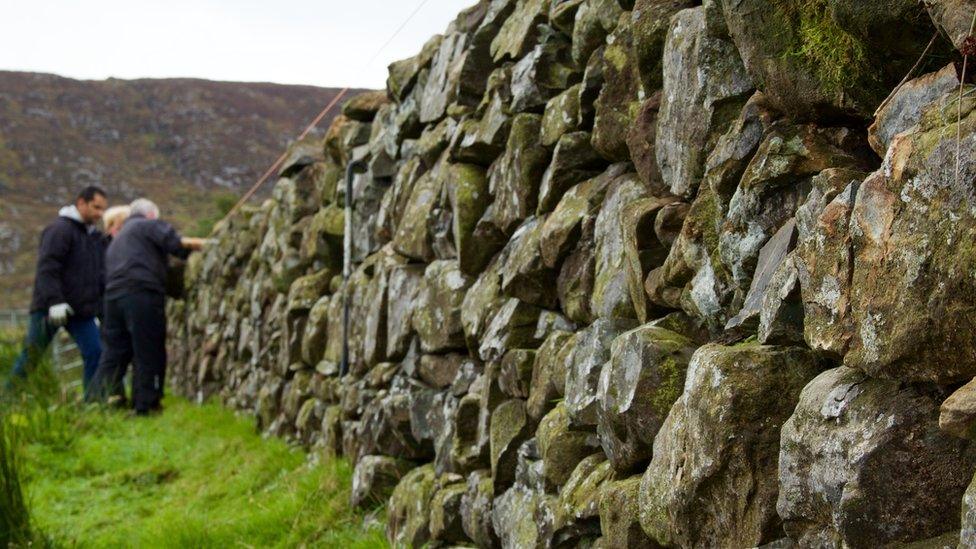
Refugees and asylum seekers have been learning preservation skills in County Down's Mourne area
"I'm here to help my new friends to build a big wall, like the Chinese wall."
Zipping up a thick jacket and pulling on a pair of gloves, Mohammed is ready for a hard day's graft.
He is one of a number of refugees and asylum seekers living in Belfast who spend their spare time doing voluntary conservation and preservation work in the Mourne mountains in County Down.
In Algeria, his home country, he was a police officer, but "problems with my government and a terrorist group" forced him to flee.
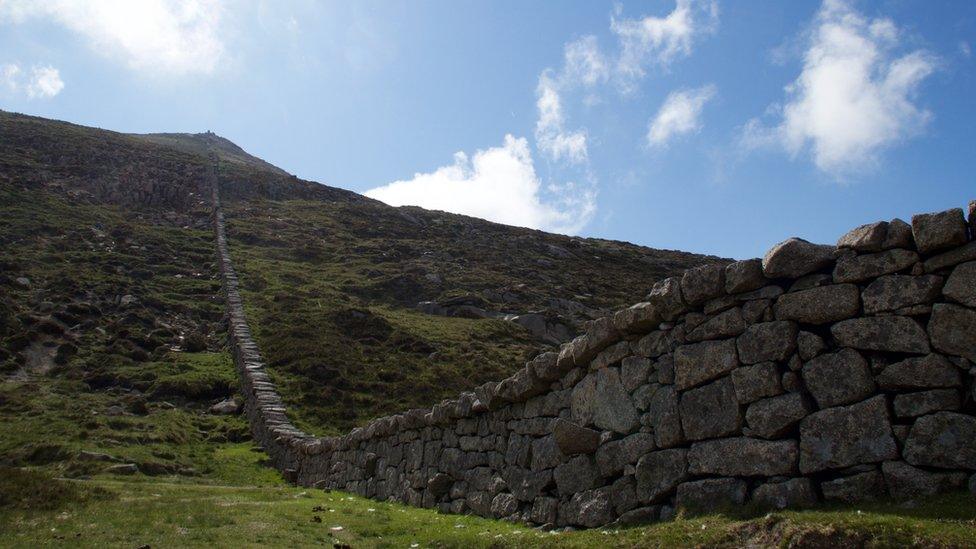
Dry-stone walls stretch over mountain summits and down through valleys in the Mournes
He has been in Northern Ireland for 18 months now - it is his "new home".
These mountains are where Mohammed and others displaced from their homelands come regularly to find peace.
Generations
They are working with the Mourne Heritage Trust, which looks after this area of outstanding natural beauty, to rebuild dry-stone walls and repair mountain paths.
The walls are one of the most unmistakable features of the Mournes, with hundreds of miles stretching over mountain peaks, dividing land and providing shelter for livestock and other wildlife.
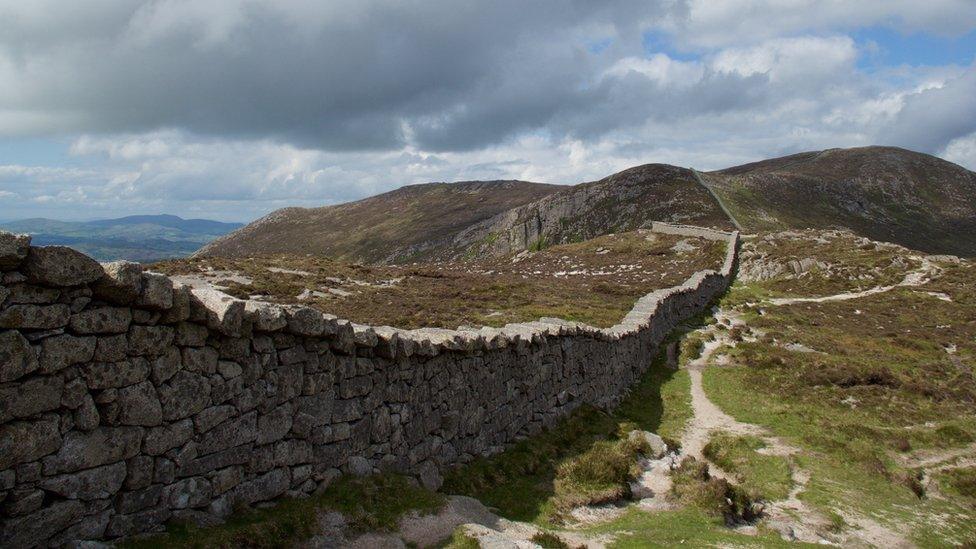
Hundreds of thousands of hikers visit the Mourne area to walk in the mountains every year
The skills to build them - patience, an eye for a good stone, and a strong back, among other things - have been passed down through generations.
And now these refugees are learning them, too.
For Mohammed, this is his first time working on the walls: "I think it's very good experience for me."
Anxieties
With about 100 Syrian refugees expected to arrive in Northern Ireland before Christmas, the volunteer scheme could soon play a bigger role in offering a tranquil retreat to more people who have left conflict-hit countries.
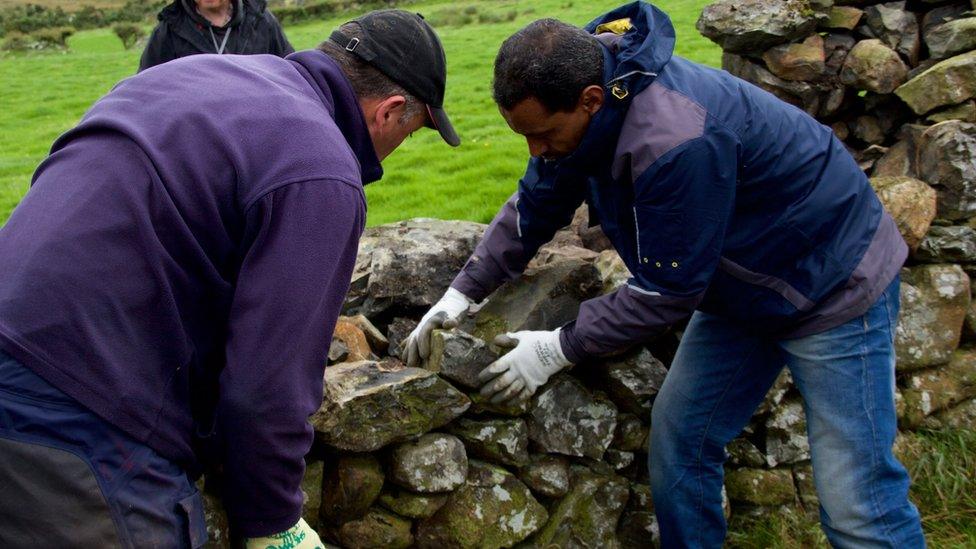
Mourne Heritage Trust workers teach the volunteers the skills needed to repair the walls
Mediation Northern Ireland is one of the charities helping refugees and asylum seekers to settle into their new lives.
Mary McAnulty from the organisation says it works closely with the Mourne Heritage Trust.
The intention has been to help the refugees to make new friends, improve their language skills and explore part the country they now call home.
"Lots of people suffer from anxieties, so having a day out of Belfast is great," Mary says.
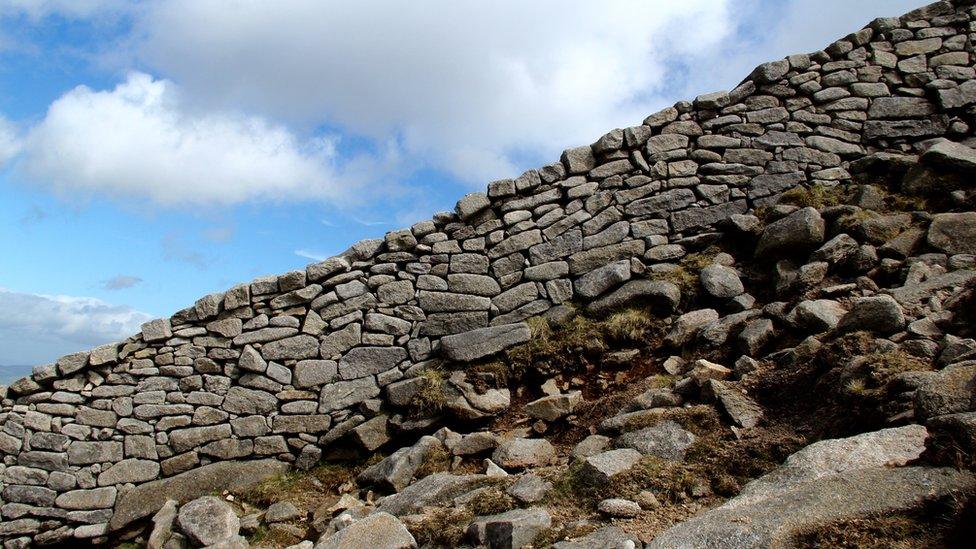
Many of the walls in the Mournes were built over a century ago by people from the area
"If your world is very small, just the area you live in, then these can be your hills.
"I love to see people becoming proud of it and feeling that they have a sense of place."
Indebted
Amar, who has moved to Belfast with his family from Sudan, says getting outside the city "is good for me".
And for Elizabeth, who is Colombian, the fresh countryside air is "good for my mind".
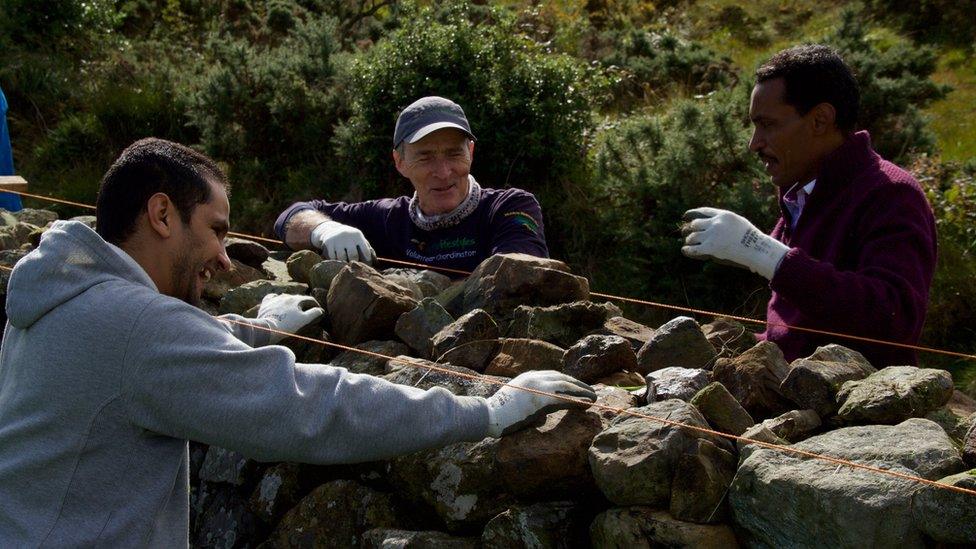
Mohammed (left) and Amar (right) say time spent in the Mournes is a welcome break from city life
But it is not just a one-way thing.
Large areas of walls have become damaged due to erosion and increasing visitor numbers, and the Mourne Heritage Trust relies on volunteers to do the repair work.
Ranger John McEvoy says the trust is indebted to the refugees.
Smile
"They're willing to get the sleeves rolled up, get stuck into it," he explains.
"As the day goes on, you'll see them lifting the stone, doing exactly as we're doing."
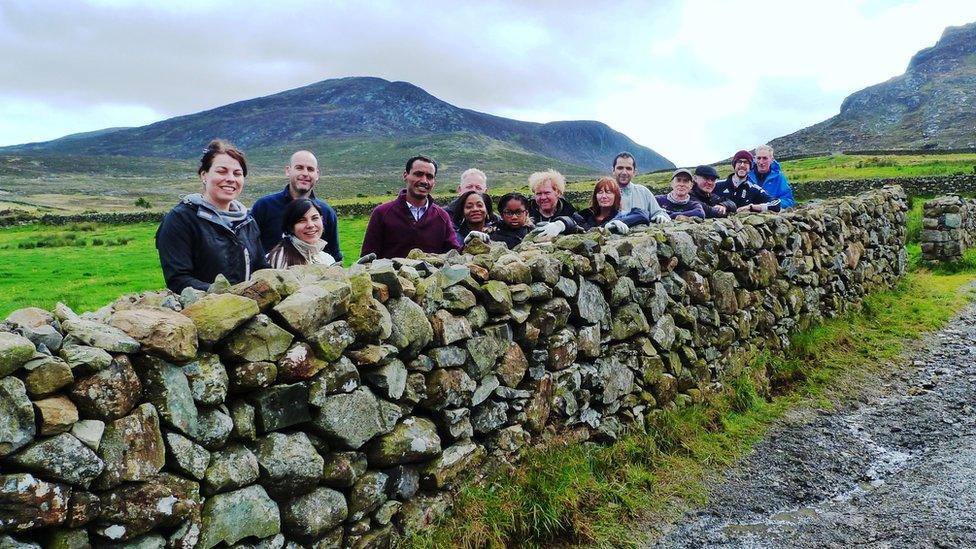
At the end of the day's work, the volunteers take pride in the mark they have made on the Mournes
And Dean Fitzpatrick, a Mourne man who comes from a family of stoneworkers, says you do not have to be born and bred in the shadow of the mountains to chip in.
"There are boys here who aren't stonemasons at all, from all different parts of the world," he says.
"They're doing as good as anybody and they've only been here an hour or two."
As Mohammed removes his gloves and wipes his brow after the work is done, his smile is wide.
"Here it's very quiet - everything is perfect for me here."
- Published19 October 2015
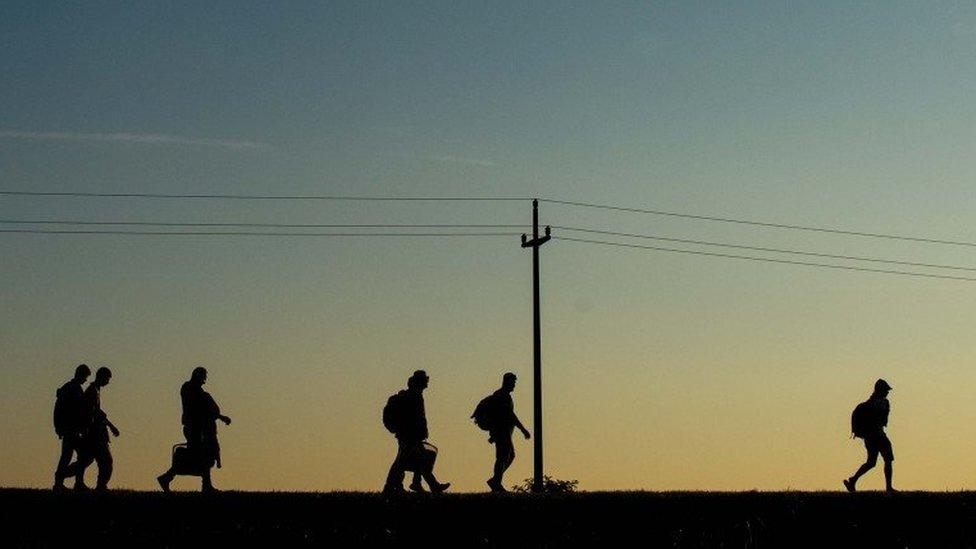
- Published4 September 2015
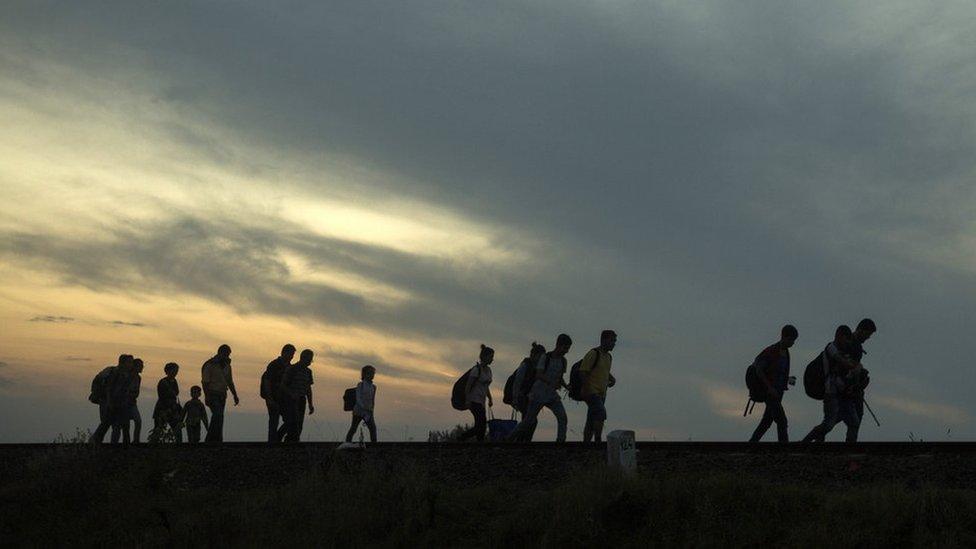
- Published3 September 2015
